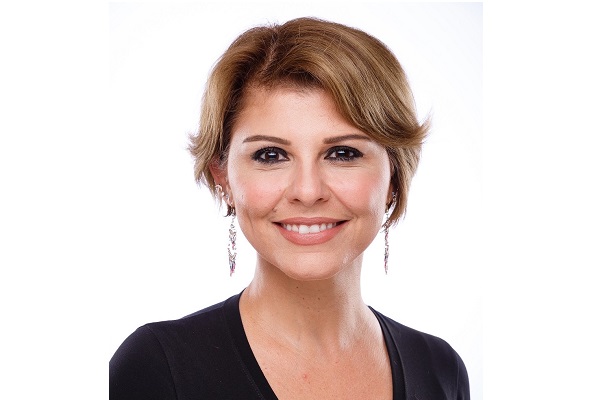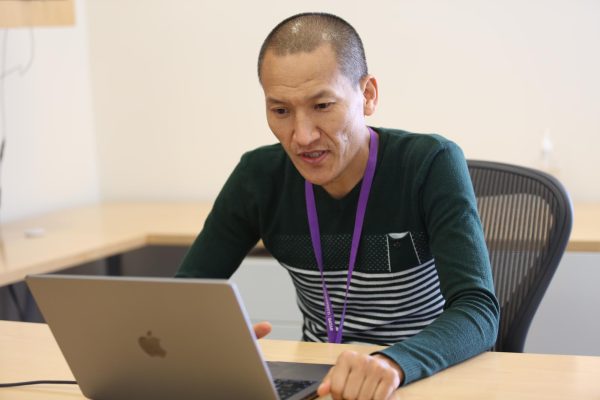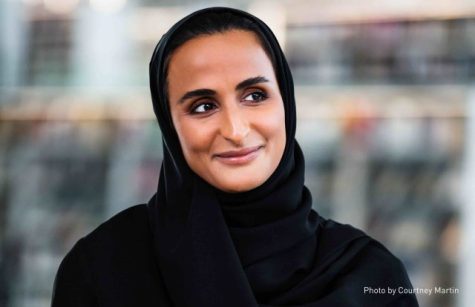Faculty Profile: Banu Akdenizli

By Oma Seddiq

For Banu Akdenizli, she never had a plan to work permanently in media. She was an undergraduate student majoring in sociology when she landed her first job as an assistant radio program producer at the Turkish National Radio and Television Corporation. Akdenizli did it for the work experience, but the opportunity exposed her to ideas and interests that she could not let go of and on which she later built her career. Starting this semester, Akdenizli is a new associate professor in the communication program at Northwestern University in Qatar, teaching two classes, Internet and Society and Communication Technology and Society.
After graduating from Bosphorus University in Istanbul, Akdenizli continued to work as an assistant radio program producer for another year because witnessing the influence of politics on media content fascinated her.
“Despite the fact that the specific company which I worked for was geared towards broadcasting popular programs, we would still get calls from the capital, Ankara, if we played a song that would be deemed ‘politically inappropriate,’” Akdenizli explained. Likewise, Akdenizli’s next job at the Turkish Cosmopolitan magazine, at a time when she was also pursuing her master’s degree in translation studies from Bosphorus, exposed her to another facet of the field. She was a writer and translator on women’s issues and became curious about problems with gender representation in the media.
These patterns intrigued Akdenizli and led her to get her Ph.D. in Mass Communication/Media Studies from Temple University in Philadelphia in 2005. She worked as an adjunct faculty member in telecommunications and mass media at the same university before joining George Mason University’s communication department. Akdenizli then joined the Pew Research Center as an index methodologist until 2009, before returning to Turkey to be an assistant professor in the School of Communication at Yeditepe University.
At Yeditepe, Akdenizli was teaching four courses per semester, jumping between different administrative roles and pursuing individual research in a political environment with limited academic freedom. She said she realized she needed a change. “The workload was extremely heavy,” Akdenizli said. “I did not really think that I was growing enough.” So she made the decision to move to a new setting and seized the opportunity to teach at NU-Q.
Akdenizli is looking forward to new opportunities such as doing more research, particularly collaborative research. “I think, as a woman in academia, it is important to be able to pursue your career a bit further and that’s actually why I’m here,” she said. Currently, Akdenizli has started a joint project with the Qatar Computing Research Institute studying the online activity of four GCC countries’ foreign institutions.
“There is a blind spot in the literature,” she said about her research. According to Akdenizli, there have been many studies about what Western embassies are doing online, but people also want to know what Middle Eastern embassies are doing. She credits her personal experience as the reason behind the type of research topics she pursues, which include media politics, censorship and freedom of expression.
Although Akdenizli has previously analyzed digital content, this project will be her first time examining media in the Gulf countries. “NU-Q is such a natural habit for this kind of material,” said Akdenizli. “I’m happy to be here.”
Though being in Qatar keeps her away from her family in Turkey, this is not Akdenizli’s first time leaving home. She has previously lived in Germany, France, and the United States. “I don’t think I have issues with adjustment,” she said. “So far, so good.”












